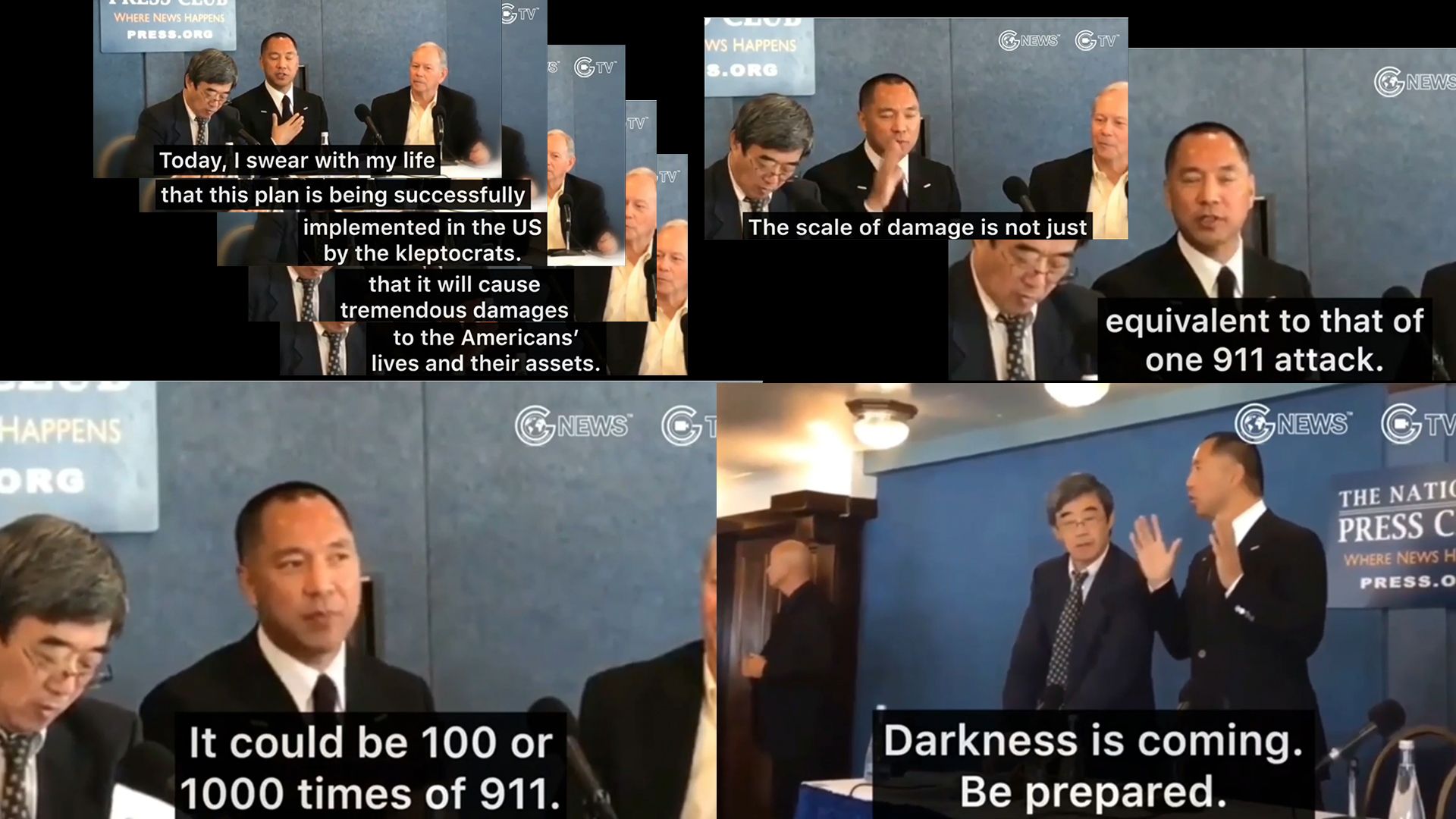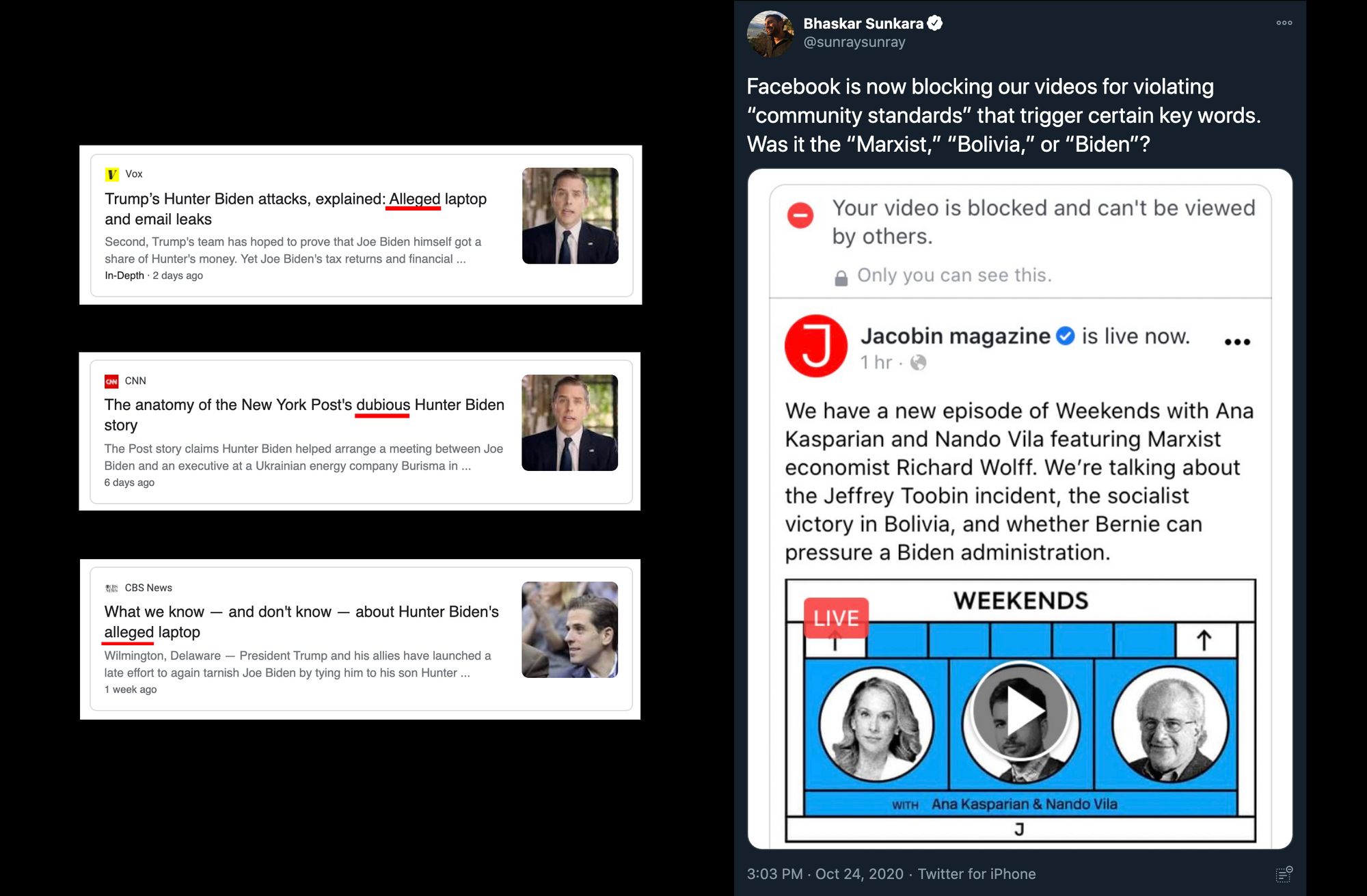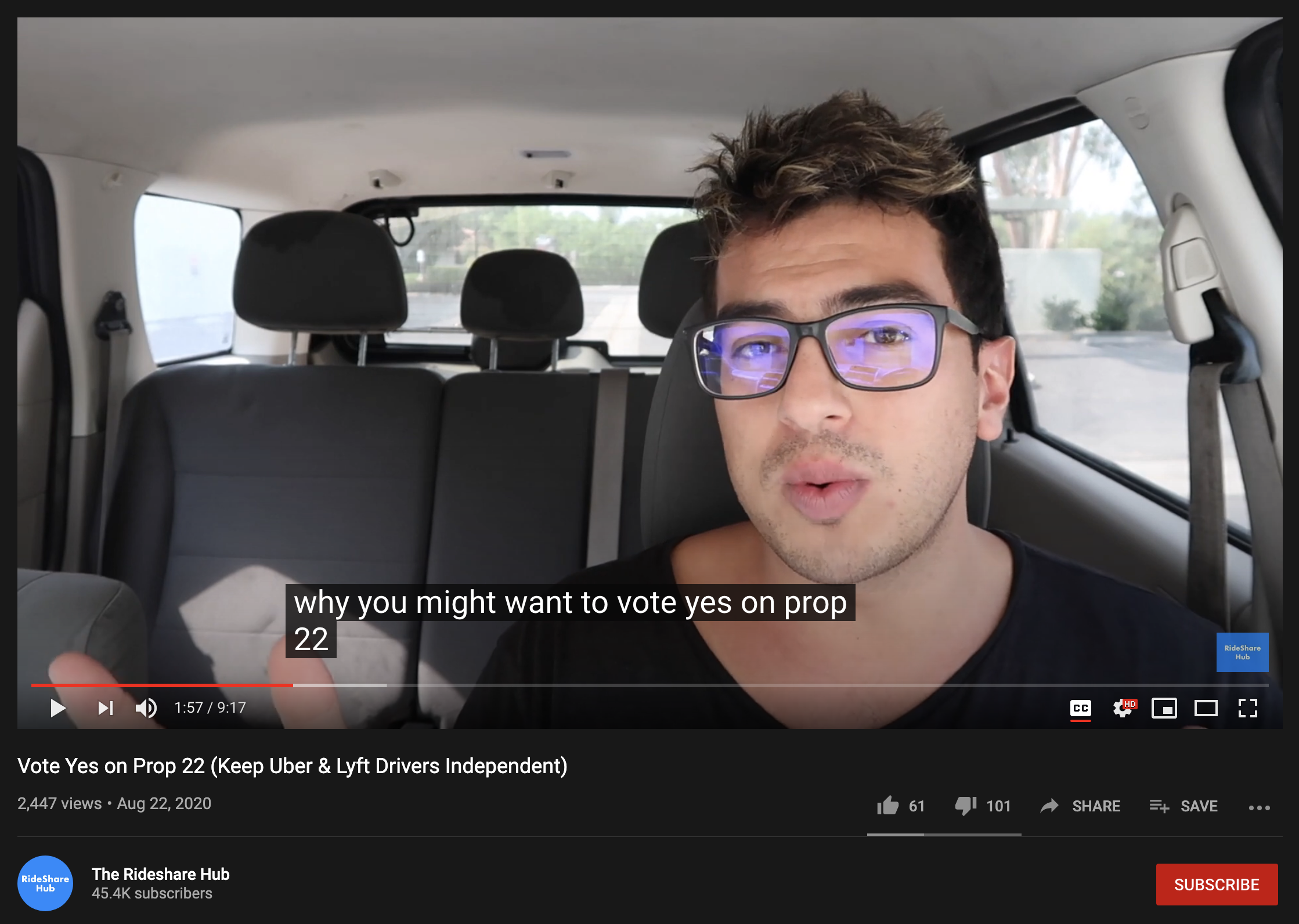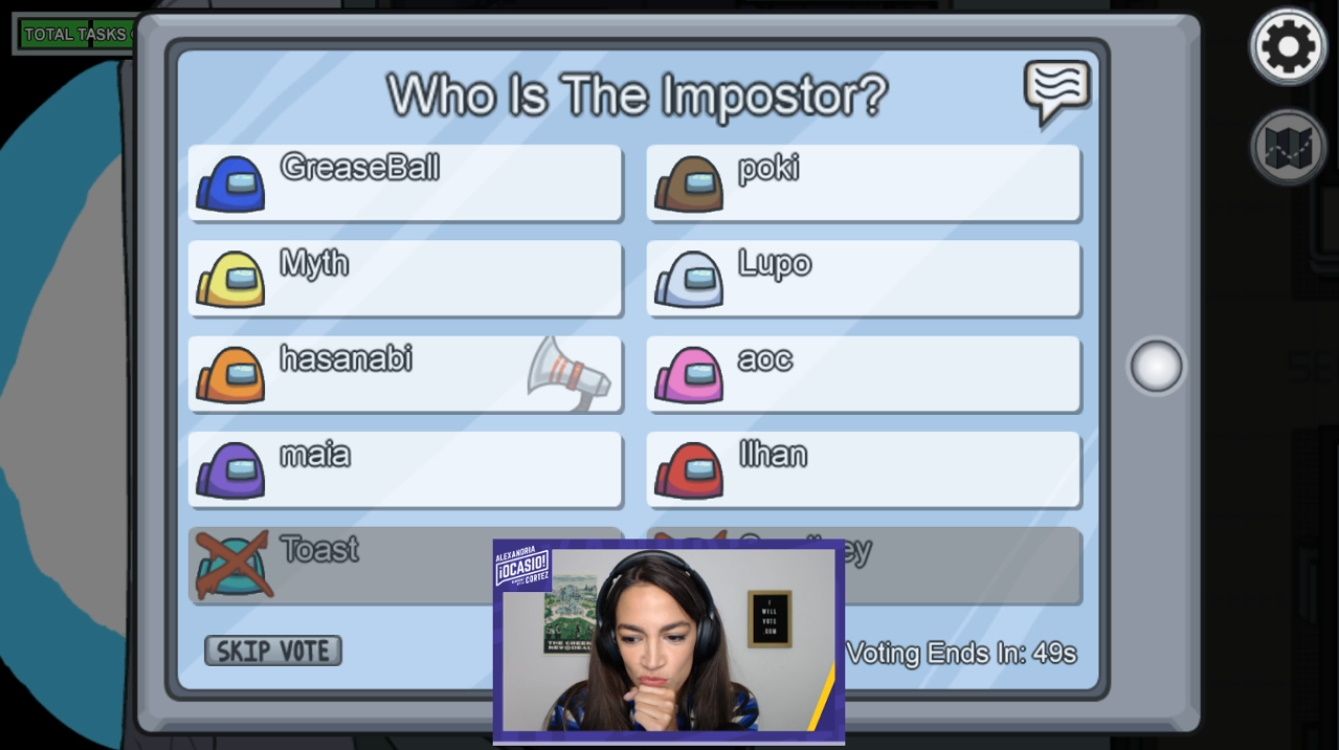Snapshot: 11 Days until U.S. Presidential Election

by Jak Ritger - 10.25.2020
As the election season winds up into fever pitch, I am struck with deja vu and the new. Deja nu? Patterns from the 2016 election reemerge stronger and more resilient along side brand new phenomena. As I reluctantly lock into a 24 hour news binge in the run-up to November 3rd, it is important to analyze just how much our perception of reality has shifted in the past four years.

The next news cycle will undoubtedly be dominated by leaked images and video stolen from Hunter Biden’s computer. The leak was facilitated by Steve Bannon, Former Chief Strategist to President Donald Trump. Bannon worked with a Chinese billionaire, Gou Wengui, to launch a video streaming platform “GTV.org" where the leaks are posted. Wengui lost a power struggle inside China and then fled the country. He now dubiously presents himself as a political dissent and activist. He is a nationalist and seeking to undermine state powers for personal political gain. It is no wonder that he found an ally in Steve Bannon. One of the leaked videos features a two minute pre-roll of Wengui ranting about Former VP, Joe Biden and the CCP’s plot to destroy the world through intentionally crashing the economy. This sentiment could just as easily be coming out of a QAnon believer on Instagram Live. The Cosmic Right is now a global movement.

What makes this fairly expected oppo-dump interesting is that in a “post-Truth” media landscape the images and videos are delegitimized as being faked, photoshopped or created using “deepfake” Machine Learning technology. Of course, there has always been an impulse to deny the veracity of oppositional messaging, but today, this denial rises to the level of reality-denial. News reports refer to the leaks as “alleged” images and videos of Hunter Biden. Everything in the leaks is just a visualization of previously widely reported stories of Hunter. There is even a heartfelt email exchange with Joe where he is loving and supporting his son. Why would the campaign deny this as being faked? I think the answer is: wrestling over truth is the new venue in which to demonstrate power. The existence of technology that can perfectly fake reality means that the position of truth is won by whoever can muster enough media authenticity to own it. The impulse to characterize the leaks as “faked” when there is nothing improbable contained within them illustrates those in power’s intent to cut through the messiness of discernment and go directly towards a kind of brute force faith in political leaders: refractive Trumpism.

The first mass-media political campaign was to fight off a socialist challenger by the name of Upton Sinclair to the seat of Governor of California in 1934. This campaign synthesized mass media with misconstruing facts: Newspaper magnates pulled quotes from Sinclair’s hugely popular fictional novels and presented character’s ravings as Sinclair’s own words. Hollywood studio barrens inserted the first attack ads into NewsReels. The media ecosystem of the time was such that there was no real distinction between the categories of fact and fiction, satire and reporting, documentary and narrative. Sinclair is remembered for his muckraking call-to-arms, The Jungle, which was a narrativized work of fiction based on under-cover investigation. Powerful narratives won popular support, not the documenting of precise evidence. Today, I feel we are entering back into this narrative-as-power framework.

As the ground of truth is dissolved by leaders for political gain, the truthfulness of a claim becomes an opinion. This point-of-view is then used by leaders speaking through mass media as justification for censorship. As with the first Hunter Biden leaks and now again, social media platforms have been kicked into gear to stop the spread of the leaks (ironically the censorship magnifies the story.) The untruthfulness of the leak or “fake-news” quality is what the platforms claim broke the Terms of Service and thus a shadow-ban or outright link-breaking was implemented. This platform level censorship was then taken up by those supporting Joe Biden by shaming anyone who posted screenshots of the leaks. The impulse to support and extend hard censorship by private technology companies into soft “cancel-culture” style censorship is ominous at best. Yesterday, as predicted by those on the left, we saw the same tools of private censorship being used to ban left-wing content (see above.)

In this new media environment, where private companies control the flow and distribution of narratives, we must struggle to boost stories that support our own worldview and demote or ban stories that refute it. This project of narrative domination further tears apart any sense of shared reality and continues to uphold the social media giants as our new unaccountable gate-keepers. Indeed, as private companies buy-off the part of the state that controls protected speech, a new dynamic comes into view: the tech giants are the new state. We must use the democratic apparatuses that respond to collective action as a tool to push back against this massive and terrifying power. One way is Ballot Initiatives.

The people vs. tech giants dynamic is going to be the biggest political narrative of the 2020s, just as the people vs. industrial giants was in the 1920s. Currently, there are two state-level Ballot Initiatives setting the tone of this political struggle: Prop 22 in California and Question 1 in Massachusetts. Prop 22 is a ballot question that, if passed, would exempt app-based services like Uber and Lyft from classifying workers as employees and allow platforms to continue handling workers as independent contractors. A “No” vote would force the app-based service industry to respect a law passed by the California state legislature classifying workers as employees. Uber and Lyft have been using their power and platform to threaten and bully employees into supporting Prop 22. Question 1 in Mass is a plan that, if passed, would force the auto-industry into making an open-data platform for onboard telematics data by 2022. This would enable future car owners to resist surveillance capitalist creep and take their vehicle to non-auto-manufacture shops for full maintenance. Expect to see more issues of workers rights under platform economies being raised. These initiatives are a political heterodoxy as they criss-cross the political spectrum, aligning Libertarians with issues of workers rights against capitalists and Liberal city-dwellers with colonizing forces of extractive capitalism. Where people come down on questions of big-tech could re-align political valencies for a generation.

As a media environment reoriented around the Trump presidency struggles to accurately portray the current stakes or history leading up to this moment, many people simple do not trust what the News is reporting between Big Pharma commercials. A new ecosystem of micro-blogs, Twitter accounts, Twitch Streamers, Podcasts and “cozyweb” Discord chats have evolved a counter-narrative focused on the material politics of labor, corporate control, geo-politics as an extension of imperialism, political economies governing industries and breaking deadlocks between binary liberal / conservative wedge issues. I have begun to call this movement the “Near-Left” to describe the within-reach politics and to refute the characterizations of “Far-Left”, “Dirtbag-Left” and “Leftist-Twitter Mob.” The Not Me, Us campaign for Bernie Sanders did tremendous work bringing this movement to the main stage. Now the “Near-Left” narrative is splintering out into thousands of micro-channels. Watch this space to understand how political realignments are taking hold and how new political economies are shaping futures.
Follow me on Instagram for daily analysis, artwork, news: @ja_ak_rtgr
